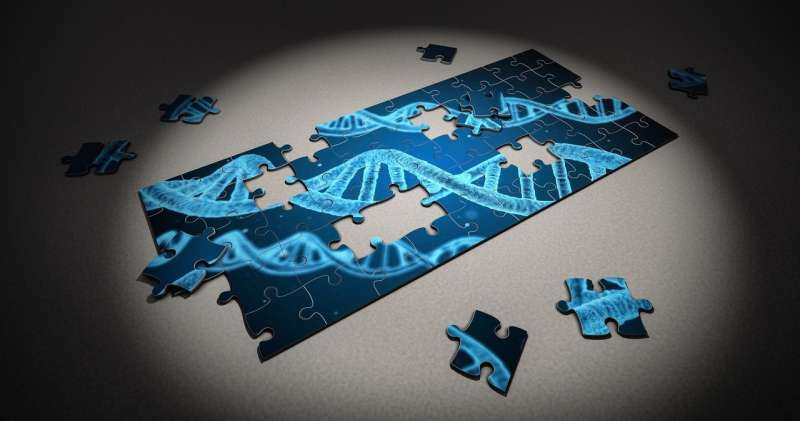Twenty four genetic variants linked to heightened womb cancer risk

Twenty four common variations in genes coding for cell growth and death, the processing of oestrogen, and gene control factors may be linked to a heightened risk of developing womb (endometrial) cancer, indicates the most comprehensive review of the published evidence so far in the Journal of Medical Genetics.
Women with all or most of these variants may run two to three times the risk of developing the disease, which is the most common gynaecological cancer in the developed world, say the researchers.
In the US women have an estimated 1 in 35 lifetime risk of being diagnosed with womb cancer, and the death toll from the disease has risen by 2% every year since 2008.
Inherited susceptibility accounts for only a small proportion of cases (3-5%), with most cases thought to be spontaneous or related to lifestyle factors.
There are two types of womb cancer: type I, which is usually diagnosed at an early stage, and is treatable; and type II, which is aggressive, often diagnosed late, and has a poor outlook.
Trying to pinpoint genetic factors that may increase the risk is therefore important. And previous research has implicated differences in just one DNA building block (nucleotide), known as single nucleotide polymorphisms, or SNPs for short.
SNPs are common, with around 4 to 5 million in an individual's complete genetic code (genome). These variations may be unique to that person or occur in many people.
Most SNPs don't affect health or development. But when they arise in a gene or in a regulatory region near one, they may affect that gene's function and boost the risk of disease.
Previous research has implicated SNPs in womb cancer risk, but the quality of these studies varies considerably and they were mostly carried out before the advent of whole genome association studies.
The researchers therefore systematically reviewed relevant research, published between 2007 and 2018, to see if there was any association between SNPs and endometrial cancer risk and came up with 149 studies out of an initial 453.
They found that 24 common SNPs in or around six genes, coding for cell growth and death, the processing of oestrogen, and gene control factors (transcription control), were strongly associated with the development of womb cancer.
Nineteen of these genetic variants were statistically significant, while five were suggestive of disease risk. But no convincing evidence was found for the most widely studied (to date) genetic variant in womb cancer.
Women with most or all of these 24 genetic variants would be expected to be twice or three times as likely to develop womb cancer as those without, calculate the researchers.
There are likely to be more SNPs involved in womb cancer development, they add: hundreds have been implicated in breast cancer, for example.
But these 24 could be used to come up with a personalised risk score for women most at risk of womb cancer, to boost early detection and/or preventive treatment efforts, they suggest.
More information: Association between genetic polymorphisms and endometrial cancer risk: a systematic review, Journal of Medical Genetics, DOI: 10.1136/jmedgenet-2019-106529


















